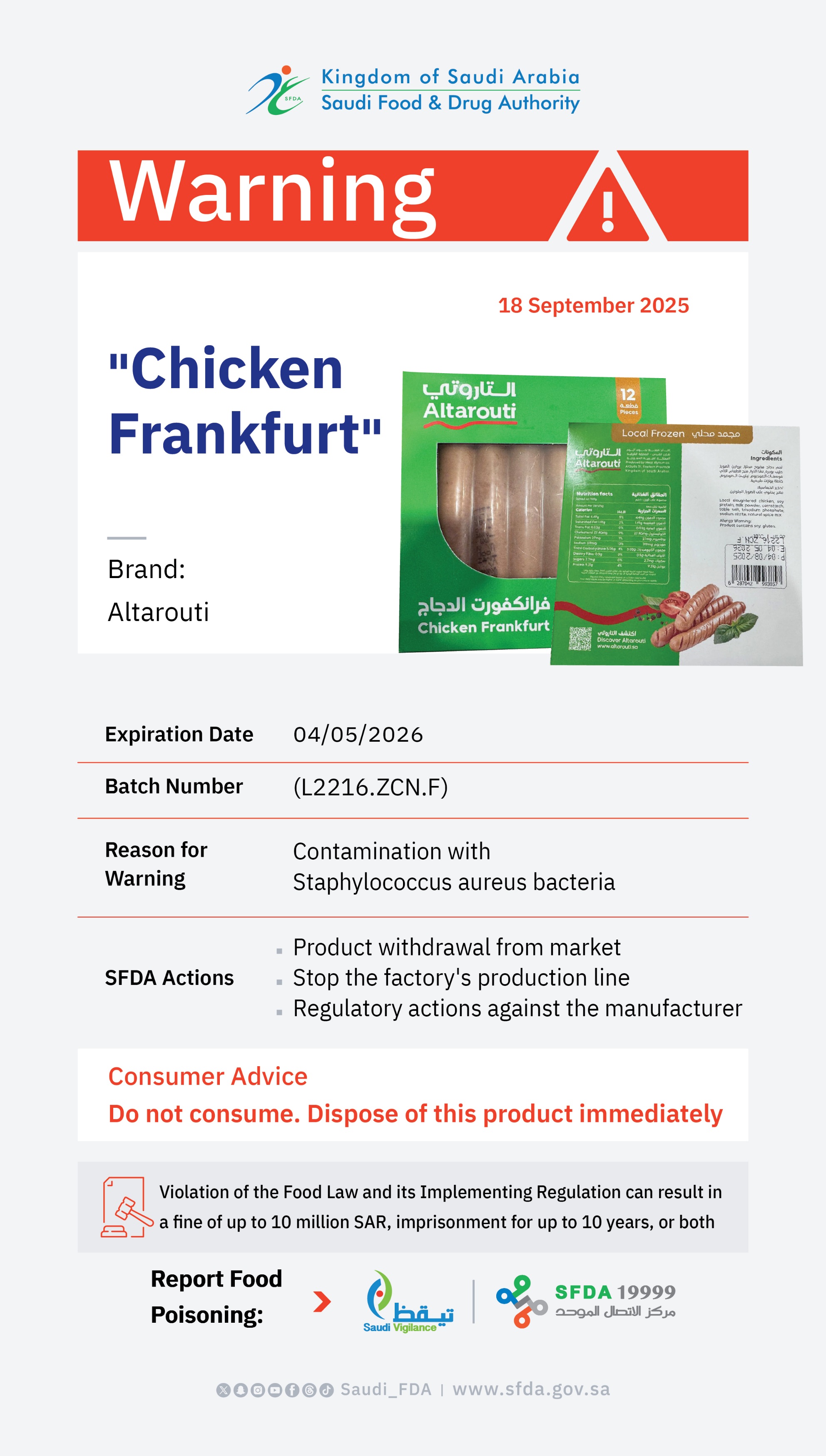
Suicidality and Antiepileptic Drugs; An FDA Alert
2008-02-06
On January 31, 2008, the U.S. Food and Drug Administration (FDA) , the American equivalent to the Saudi Food and Drug Authority (SFDA), released a safety information about antiepileptic drugs. Antiepileptic drugs may be associated with an increased risk of suicidal behavior and suicidal ideation.
The U.S. FDA has analyzed reports of suicidality (suicidal behavior or ideation) from placebo controlled clinical studies of 11 drugs used to treat epilepsy as well as psychiatric disorders. In the FDA analysis, patients receiving antiepileptic drugs had approximately twice the risk of suicidal behavior or ideation (0.43%) compared to patients receiving placebo (0.22%).
The increased risk of suicidal behavior and suicidal ideation was observed as early as one week after starting the antiepileptic drug and continued through 24 weeks. The results were generally consistent among the eleven drugs. The relative risk for suicidality was higher in the patients with epilepsy compared to patients who were given one of the drugs in the class for psychiatric or other conditions.
Antiepileptic medications include the followings:
· Carbamazepine
· Felbamate
· Gabapentin
· Lamotrigine
· Levetiracetam
· Oxcarbazepine
· Pregabalin
· Tiagabine
· Topiramate
· Valproate
· Zonisamide
Although the 11 drugs listed above were the ones included in the analysis, FDA expects that the increased risk of suicidality is shared by all antiepileptic drugs and anticipates that the class labeling changes will be applied broadly.
Actions that Healthcare Professionals should follow:
- Balance the risk for suicidality with the clinical need for the drug.
- Be aware of the possibility of the emergence or worsening of depression, suicidality, or any unusual changes in behavior.
- Inform patients, their families, and caregivers of the potential for an increase in the risk of suicidality so they are aware and able to notify their healthcare provider of any unusual behavioral changes.
Actions that patients and caregivers should follow:
- Taking antiepileptic medicines may increase the risk of having suicidal thoughts or actions.
- Do not make any changes to the medication regimen without first talking with the responsible healthcare professional.
- Pay close attention to any day-to-day changes in mood, behavior and actions. These changes can happen very quickly so it is important to be mindful of any sudden differences.
- Be aware of common warning signs that might be a signal for risk of suicide. Some of these are:
- Talking or thinking about wanting to hurt yourself or end your life.
- Withdrawing from friends and family
- Becoming depressed or having your depression get worse
- Becoming preoccupied with death and dying
- Giving away prized possessions
Report Adverse Drug Reactions to the SFDA:
Public and health professionals are encouraged to report adverse drug reactions to the National Pharmacovigilance Center on the Internet at:





